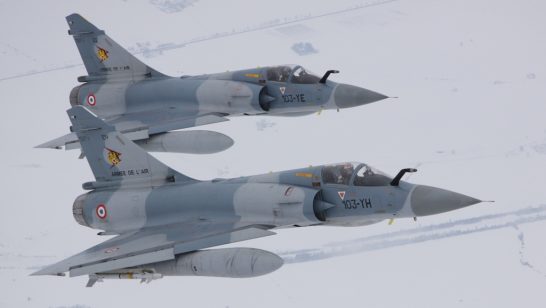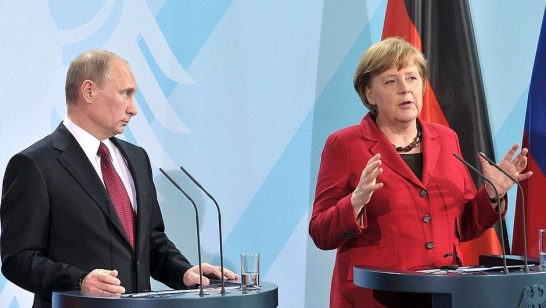
We all remember the days when Vladimir Putin was a promising new leader, who was supposed to stabilise Russia by building friendly relations with the West and introduce the “dictatorship of law”. President Bush detected sincerity and trustworthiness in Putin’s eyes. There was hope of a strategic partnership with the European Union, a “reset” with the US, and a new NATO-Russia Council.
The United States was then faced with new challenges: terrorism; fundamentalism; challenges across the wider Middle East; and not least, a challenge from China. The U.S. “pivot to Asia” signaled a serious and understandable change in American foreign policy. Europe appeared to be “sorted”. The grand objective for whole and free Europe was almost completed, with the main responsibility for the task resting with the European Union. There appeared to be no military threat warranting a continued level of attention and military might from the United States to protect the European continent. Completing the integration of the remaining countries into European structures was to be addressed by the enlargement policy of the European Union in the Western Balkans and the Eastern Partnership policy in Eastern Europe (the European countries of the former Soviet Union).
Then came 2008 and Georgia. For the first time since World War II an independent European country was invaded by another country, Russia, using the pretext of protecting the Russian-speaking population. The reaction to the aggression was lukewarm. In fact, it resembled the best days of Chamberlain. Europe was looking for excuses not to take this invasion seriously and found the pretext in blaming Georgia for provoking Russia. And the United States was happy to follow. Without going into further detail, it has to be highlighted that: 1. it was Russia that provoked Georgia and; 2. no provocation by Georgia could have justified the invasion of its country and the de facto annexation of 20% of its territory.
That being said, some have argued that Mr. Putin’s change in policy towards Ukraine approximately a year ago could not have been foreseen. This, however, is a poor excuse. There were many of us who did see it coming. As early as July 2009, more than 20 leading strategic thinkers in Eastern and Central Europe issued a strong warning. We wrote in an open letter to President Obama:
“And then there is the issue of how to deal with Russia. Our hopes that relations with Russia would improve and that Moscow would finally fully accept our full sovereignty and independence after joining NATO and the EU have not been fulfilled. Instead, Russia is back as a revisionist power pursuing a 19th-century agenda with 21st-century tactics and methods. On a global level, Russia has become, on most issues, a status-quo power. But at a regional level and vis-à-vis our nations, it increasingly acts as a revisionist one. It challenges our claims to our own historical experiences. It asserts a privileged position in determining our security choices. It uses overt and covert means of economic warfare, ranging from energy blockades and politically motivated investments to bribery and media manipulation in order to advance its interests and to challenge the trans-Atlantic orientation of Central and Eastern Europe.”
Nobody listened. When I – a decades old good friend and a strong Atlanticist – was sent to present the letter in Washington, I was shouted down in the White House. And the appeasement policy continued.
The open letter presents a deeper analysis of the situation. It is still valid today. However, what is needed now based on this letter’s diagnosis is a prescription: how we the West should act in the current situation.
As a point of departure, we need to clearly determine what the effects of our actions on Russia and Putin are. One of the basic mistakes Western democracies make is that they assume, and proceed on this basis, that Russia will act as a country similar to them. This is a grave mistake, since authoritarian regimes and dictatorship (we could discuss which one reflects better the current regime in Russia) react differently. They usually take gestures as a sign of weakness; they pocket them and start again with the same demand.
Therefore, two important lessons must be applied:
1. In order to achieve agreement with authoritarian regimes we must convince them that they should be more interested in reaching an agreement than we are. In order to achieve that we must show strength.
2. Important deals must be made in a package. The usual step-by-step approach will allow our partner to pocket our offers without reciprocating. Therefore, a “nothing is agreed until everything is agreed” approach seems to be the best – probably the only one that will produce results.
In order to build a stable relationship with Russia, we must first understand its nature, determine what our real interests are and also make a realistic estimation of Russian interests – real and perceived. Using it as a starting point we will be able to also determine, where our interests coincide, run in parallel, are neutral and where they are in conflict. It sounds very simple, but I am sure it has to been done before both the European Union and the United States engage again in the appeasement policy characteristic of the last decade.
The most urgent task is to address the Russian aggression against Ukraine and NATO’s role. The West, again, tries to downplay this calling it everything short of an aggression. They believe that being soft will make President Putin more cooperative. In fact, it is just the opposite – as seen in his actions vis-à-vis Ukraine. The appeasement policy of the last decade, ignoring of defense of new NATO members by the entire Alliance, the weakening of the Alliance by drastic budget cuts by the European members, making “red lines” de facto nonexistent is Syria, the lukewarm reaction to the annexation of the Crimea, the hesitation to provide Ukraine with the means to defend itself (including weapons) – these steps reinforce Putin’s conviction that NATO is not serious about Ukraine, maybe not even about defending the most endangered members, like the Baltic states, Poland and Romania.
Of course, nobody suggests sending NATO troops to Ukraine. But much more effective help is needed in terms of training, delivery of necessary weapons and equipment etc. Much more robust action is also necessary to demonstrate that the border of any NATO country is a real red line.
The European Union and the United States failed to impose effective sanctions against Moscow. The current steps have been too little, too late. Although they undoubtedly have a serious effect on Russia – although we should not interpret the loss caused by the fall of oil (and gas) prices as an effect of the sanctions – it is by far not sufficient. What is needed are strong sanctions introduced in one move, not to allow preparations, instead of announcing them in phases.
It would also be necessary to avoid sending the wrong messages to Moscow. Suggestions to start thinking about the conditions to lift sanctions are not only damaging, but are also unprofessional in terms of preparing a negotiating space: revealing them early seriously limits the room for maneuver, if and when negotiations start.
So, the answer to “Who lost Russia” consists of several parts. Firstly, the Russian people themselves. Secondly, the European leaders, who have been reluctant to step up early and nurtured their illusions that Russia can easily be integrated into Europe, using the same means as when integrating former European satellites of the Soviet Union. And finally, the United States, with its appeasement policy of the reset, guided by the same illusions as well as the hope that Russia will be a global strategic partner in the fight against terrorism. But did somebody “win” Russia? Yes, and guess who? China.
The opinions articulated above represent the views of the author(s), and do not necessarily reflect the position of the European Leadership Network or any of its members. The ELN’s aim is to encourage debates that will help develop Europe’s capacity to address the pressing foreign, defence, and security challenges of our time.



